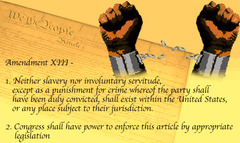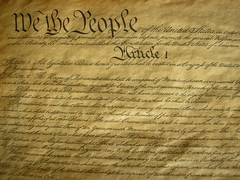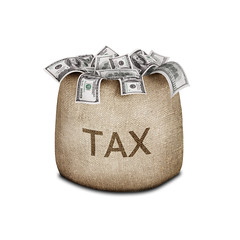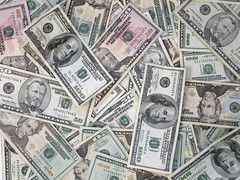| 6041263697 | social gospel | A movement in the late 1800s / early 1900s which emphasized charity and social responsibility as a means of salvation, taught religion and human dignity would help the middle class over come problems of industrialization | | 0 |
| 6041263698 | muckrakers | A group of investigative reporters who pointed out the abuses of big business and the corruption of urban politics; included Frank Norris (The Octopus) Ida Tarbell (A history of the standard oil company) Lincoln Steffens (the shame of the cities) and Upton Sinclair (The Jungle) | | 1 |
| 6041263699 | initiative | Allows voters to petition to propose legislation &then submit it for a vote by qualified voters | | 2 |
| 6041263700 | referendum | A state-level method of direct legislation that gives voters a chance to approve or disapprove proposed legislation or a proposed constitutional amendment. | | 3 |
| 6041263701 | recall | A procedure for submitting to popular vote the removal of officials from office before the end of their term. | | 4 |
| 6041263702 | Australian ballot | A government printed ballot of uniform size and shape to be cast in secret that was adopted by many states around 1890 in order to reduce the voting fraud associated with party printed ballots cast in public. | | 5 |
| 6041263703 | Muller v. Oregon | 1908 - Supreme Court upheld Oregon state restrictions on the working hours of women as justified by the special state interest in protecting women's health | | 6 |
| 6041263704 | Lochner v. New York | (1905) This supreme court case debated whether or not New York state violated the liberty of the fourteenth amendment which allowed Lochner to regulate his business when he made a contract. The specific contract Lochner made violated the New York statute which stated that bakers could not work more than 60 hours per week, and more than 10 hours per day. Ultimately, it was ruled that the New York State law was invalid, and interfered with the freedom of contract. | | 7 |
| 6041263705 | Woman's Christian Temperance Union | Fought for adoption of local and state laws restricting the sale of alcohol | | 8 |
| 6041263706 | Elkins Act | (1903) gave the Interstate Commerce Commission more power to control railroads from giving preferences to certain customers | | 9 |
| 6041263707 | Meat Inspection Act | 1906 - Laid down binding rules for sanitary meat packing and government inspection of meat products crossing state lines. | | 10 |
| 6041263708 | Pure Food and Drug Act | 1906 - Forbade the manufacture or sale of mislabeled or adulterated food or drugs, it gave the government broad powers to ensure the safety and efficacy of drugs in order to abolish the "patent" drug trade. Still in existence as the FDA. | | 11 |
| 6041263709 | dollar diplomacy | Foreign policy created under President Taft that had the U.S. exchanging financial support ($) for the right to "help" countries make decisions about trade and other commercial ventures. Basically it was exchanging money for political influence in Latin America and the Caribbean. | | 12 |
| 6041263710 | Payne-Aldrich Bill | Though Taft promised to lower the tariff, this tariff bill had so many amendments that it actually raised the tariff; caused uproar w/ progressives who felt betrayed | | 13 |
| 6041263711 | New Freedom | Democrat Woodrow Wilson's political slogan in the presidential campaign of 1912; Wilson wanted to improve the banking system, lower tariffs, and, by breaking up monopolies, give small businesses freedom to compete. | | 14 |
| 6041263712 | New Nationalism | Roosevelt's progressive political policy that favored heavy government intervention in order to assure social justice | | 15 |
| 6041263713 | Underwood Tariff | Pushed through Congress by Woodrow Wilson, this 1913 tariff reduced average tariff duties by almost 15% and established a graduated income tax | | 16 |
| 6041263714 | Federal Reserve Act | a 1913 law that set up a system of federal banks and gave government the power to control the money supply | | 17 |
| 6041263715 | Federal Trade Commission Act | (WW) 1914 , A government agency established in 1914 to prevent unfair business practices and help maintain a competitive economy, support antitrust suits | | 18 |
| 6041263716 | Clayton Anti-Trust Act | New antitrust legislation constructed to remedy deficiencies of the Sherman Antitrust Act, namely, it's effectiveness against labor unions | | 19 |
| 6041263717 | holding companies | Companies that hold a majority of another company's stock in order to control the management of that company. Can be used to establish a monopoly. | | 20 |
| 6041263718 | Workingmen's Compensation Act | 1916 granting assistance to federal civil service employees during periods of disability | | 21 |
| 6041263719 | Adamson Act | 1916 law that established 8 hour workday for railroad workers in order to avert a national strike | | 22 |
| 6041263720 | Jones Act | (WW) 1916, Promised Philippine independence. Given freedom in 1917, their economy grew as a satellite of the U.S. Filipino independence was not realized for 30 years. | | 23 |
| 6041263721 | Tampico Incident | In April 1914, some U.S. sailors were arrested in Tampico, Mexico. President Wilson used the incident to send U.S. troops into northern Mexico. His real intent was to unseat the Huerta government there. After the Niagara Falls Conference, Huerta abdicated and the confrontation ended. | | 24 |
| 6041263722 | Zimmerman note | A note intercepted by the US, originally sent from Germany to Mexico saying that if Mexico can keep the US out of the Great War then Germany would help Mexico regain its territories taken from the US like New Mexico, Texas and Arizona. | | 25 |
| 6041263723 | Fourteen Points | A series of proposals in which U.S. president Woodrow Wilson outlined a plan for achieving a lasting peace after World War I. | | 26 |
| 6041263724 | Committee on Public Information | It was headed by George Creel. The purpose of this committee was to mobilize people's minds for war, both in America and abroad. Tried to get the entire U.S. public to support U.S. involvement in WWI. Creel's organization, employed some 150,000 workers at home and oversees. He proved that words were indeed weapons. | | 27 |
| 6041263725 | Espionage Act | 1917 law that set heavy fines and long prison terms for antiwar activities | | 28 |
| 6041263726 | Schenck v. United States | Supreme court decides that any actions taken that present a "clear and present danger" to the public or government isn't allowed, this can limit free speech | | 29 |
| 6041263727 | War Industries Board | Agency established during WWI to increase efficiency & discourage waste in war-related industries. | | 30 |
| 6041263728 | National War Labor Board | A board that negotiated labor disputes and gave workers what they wanted to prevent strikes that would disrupt the war | | 31 |
| 6041263729 | Industrial Workers of the World | Founded in 1905, this radical union, also known as the Wobblies aimed to unite the American working class into one union to promote labor's interests. It worked to organize unskilled and foreign-born laborers, advocated social revolution, and led several major strikes. Stressed solidarity. | | 32 |
| 6041263730 | Nineteenth Amendment | The constitutional amendment adopted in 1920 that guarantees women the right to vote. | | 33 |
| 6041263731 | Sheppard-Towner Maternity Act | (1921) First federal health care legislation, aimed to lower high rates of infant mortality by funding medical clinics, prenatal educational programs, and visiting nurse projects. | | 34 |
| 6041263732 | League of Nations | A world organization established in 1920 to promote international cooperation and peace. It was first proposed in 1918 by President Woodrow Wilson, although the United States never joined the League. Essentially powerless, it was officially dissolved in 1946. | | 35 |
| 6041263733 | irreconcilables | Senators who voted against the League of Nations with or without reservations | | 36 |
| 6041263734 | Treaty of Versailles | the treaty imposed on Germany by the Allied powers in 1920 after the end of World War I which demanded exorbitant reparations from the Germans | | 37 |
| 6041263735 | Bolshevik Revolution | The overthrow of Russia's Provisional Government in the fall of 1917 by Lenin and his Bolshevik forces, made possible by the government's continuing defeat in the war, its failure to bring political reform, and a further decline in the conditions of everyday life. | | 38 |
| 6041263736 | red scare | A social/political movement designed to prevent a socialist/communist/radical movement in this country by finding "radicals," incarcerating them, deporting them, and subverting their activities | | 39 |
| 6041263737 | criminal syndicalism laws | Passed by many states during the Red Scare of 1919-1920, these nefarious laws outlawed the mere advocacy of violence to secure social change. Stump speakers for the International Workers of the World, or IWW, were special targets. | | 40 |
| 6041263738 | American plan | A business-oriented approach to worker relations popular among firms in the 1920s to defeat unionization. Managers sought to strengthen their communication with workers and to offer benefits like pensions and insurance. They insisted on an "open shop" in contrast to the mandatory union membership through the "closed shop" that many labor activists had demanded in the strike after World War I. | | 41 |
| 6041263739 | Bible Belt | The region of the American South, extending roughly from North Carolina west to Oklahoma and Texas, where Protestant Fundamentalism and belief in literal interpretation of the Bible were traditionally strongest. | | 42 |
| 6041263740 | Immigration Act of 1924 | Also known as the Johnson-Reed Act. Federal law limiting the number of immigrants that could be admitted from any country to 2% of the amount of people from that country who were already living in the U.S. as of the census of 1890. | | 43 |
| 6041263741 | Eighteenth Amendment | prohibited the manufacture, sale, and distribution of alcoholic beverages | | 44 |
| 6041263742 | Volstead Act | Bill passed by Congress to enforce the language of the 18th Amendment. This bill made the manufacture and distribution of alcohol illegal within the borders of the United States. | | 45 |
| 6041263743 | racketeers | a person who engages in dishonest and fraudulent business dealings | | 46 |
| 6041263744 | Fundamentalism | A Protestant Christian movement emphasizing the literal truth of the Bible and opposing religious modernism, which sought to reconcile religion and science. It was especially strong in the Baptist Church and the Church of Christ, first organized in 1906. | | 47 |
| 6041263745 | Scientific Management | An approach that involves using the scientific method to determine the "one best way" for a job to be done. | | 48 |
| 6041263746 | Fordism | A system of assembly-line manufacturing and mass production named after Henry Ford, founder of the Ford Motor Company and developer of the Model T car. (783) | | 49 |
| 6041263747 | United Negro Improvement Association | A group founded by Marcus Garvey to promote the settlement of American blacks in their own "African homeland" | | 50 |
| 6041263748 | modernism | A cultural movement embracing human empowerment and rejecting traditionalism as outdated. Rationality, industry, and technology were cornerstones of progress and human achievement. | | 51 |
| 6041263749 | "Lost Generation" | A group of American writers that rebelled against America's lack of cosmopolitan culture in the early 20th century. Many moved to cultural centers such as London in Paris in search for literary freedom. Prominent writers included T.S. Eliot, Ezra Pound, and Ernest Hemingway among others. | | 52 |
| 6041263750 | Harlem Renaissance | A period in the 1920s when African-American achievements in art and music and literature flourished | | 53 |
| 6041263751 | Adkins v. Children's Hospital | court case reversed Muller v. Oregon that declared women as needing special protection in workplace and invalidated the minimum wage, since women can vote they were equals of men | | 54 |
| 6041263752 | Nine-Power Treaty | 1922. Treaty that was essentially a reinvention of the Open Door Policy. All members to allow equal and fair trading rights with China. Signed by (9) US, Japan, China, France, Great Britain, Italy, Belgium, Netherlands, and Portugal. | | 55 |
| 6041263753 | Kellogg-Briand Pact | Agreement signed in 1928 in which nations agreed not to pose the threat of war against one another | | 56 |
| 6041263754 | Fordney-McCumber Tariff Law | 1922 and 1930, raised tariffs extremely high on manufactured goods; benefited domestic manufacturers, but limited foreign trade | | 57 |
| 6041263755 | Teapot Dome Scandal | Scandal during the Harding administration involving the granting of oil-drilling rights on government land in return for money | | 58 |
| 6041263756 | McNary-Haugen Bill | A plan to rehabilitate American agriculture by raising the domestic prices of farm products *Effects of the protective tariff and burdens of debt and taxation had created a serious agricultural depression and grew steadily worse | | 59 |
| 6041263757 | Dawes Plan | A plan to revive the German economy, the United States loans Germany money which then can pay reparations to England and France, who can then pay back their loans from the U.S. This circular flow of money was a success. | | 60 |
| 6041263758 | Agricultural Marketing Act | Established the first major government program to help farmers maintain crop prices with a federally sponsored Farm Board that would make loans to national marking cooperatives or set up corporations to buy surpluses and raise prices. This act failed to help American farmers. | | 61 |
| 6041263759 | Hawley-Smoot Tariff | 1930 , charged a high tax for imports thereby leading to less trade between America and foreign countries along with some economic retaliation, HIGHEST EVER | | 62 |
| 6041263760 | Black Tuesday | October 29, 1929; date of the worst stock-market crash in American history and beginning of the Great Depression. | | 63 |
| 6041263761 | Hoovervilles | Shanty towns that the unemployed built in the cities during the early years of the Depression; the name given to them shows that the people blamed Hoover directly for the Depression. | | 64 |
| 6041263762 | Reconstruction Finance Corporation | Agency established in 1932 to provide emergency relief to large businesses, insurance companies, and banks. | | 65 |
| 6041263763 | Norris-La Guardia Anti-injuction Act | outlawed contracts that forced workers to NOT join unions. the fed gov't had no right to hinder strikes, boycotts, or peaceful protests. Hoover eventually got around to helping the people, even though some said he didn't care. | | 66 |
| 6041263764 | Bonus Army | Group of WWI vets. that marched to D.C. in 1932 to demand the immediate payment of their goverment war bonuses in cash | | 67 |
| 6041263765 | Brain Trust | Group of expert policy advisers who worked with FDR in the 1930s to end the great depression | | 68 |
| 6041263766 | New Deal | A series of reforms enacted by the Franklin Roosevelt administration between 1933 and 1942 with the goal of ending the Great Depression. | | 69 |
| 6041263767 | Hundred Days | 100 days after FDR was sworn into office. Congress passed into law every request of FDR enacting more major legislation than any single Congress in history | | 70 |
| 6041263768 | Glass-Steagall Banking Reform Act | Created the Federal Deposit Insurance Corporation, which insures the accounts of depositors of its member banks. It outlawed banks investing in the stock market. | | 71 |
| 6041263769 | Civilian Conservation Corps | a public work relief program for unemployed men so they have jobs. the men worked on jobs related to conservation and development of natural resources | | 72 |
| 6041263770 | National Recovery Administration | Government agency that was part of the New Deal and dealt with the industrial sector of the economy. It allowed industries to create fair competition which were intended to reduce destructive competition and to help workers by setting minimum wages and maximum weekly hours. | | 73 |
| 6041263771 | Agricultural Adjustment Administration | Recovery: (AAA); May 12, 1933; restricted crop production to reduce crop surplus; goal was to reduce surplus to raise value of crops; farmers paid subsidies by federal government; declared unconstitutional by the Supreme Court in US vs Butler on January 6, 1936 | | 74 |
| 6041263772 | Dust Bowl | A nickname for the Great Plains regions hit by drought and dust storms in the early 1930s | | 75 |
| 6041263773 | Tennessee Valley Authority | A relief, recovery, and reform effort that gave 2.5 million poor citizens jobs and land. It brought cheap electric power, low-cost housing, cheap nitrates, and the restoration of eroded soil. | | 76 |
| 6041263774 | Social Security Act | A 1935 law passed during the Great Depression that was intended to provide a minimal level of sustenance to older Americans and thus save them from poverty. | | 77 |
| 6041263775 | Wagner Act | 1935, also National Labor Relations Act; granted rights to unions; allowed collective bargaining | | 78 |
| 6041263776 | Fair Labor Standards Act | 1938 act which provided for a minimum wage and restricted shipments of goods produced with child labor | | 79 |
| 6041263777 | Congress of Industrial Organizations | A federation of labor union for all unskilled workers. It provided a national labor union for unskilled workers, unlike the AFL, which limited itself to skilled workers. | | 80 |
| 6041263778 | Court-packing plan | President FDR's failed 1937 attempt to increase the number of US Supreme Court Justices from 9 to 15 in order to save his 2nd New Deal programs from constitutional challenges | | 81 |
| 6041263779 | Keynesianism | An economic theory based on the thoughts of British economist John Maynard Keynes, holding that central banks should adjust interest rates and governments should use deficit spending and tax policies to increase purchasing power and hence prosperity. | | 82 |
| 6041263780 | London Economic Conference | A sixty-nation economic conference organized to stabilize international currency rates. By Roosevelt revoking U.S. participation, there was a deeper world economic crisis. | | 83 |
| 6041263781 | Good Neighbor Policy | FDR's foreign policy of promoting better relations w/Latin America by using economic influence rater than military force in the region | | 84 |
| 6041263782 | Reciprocal Trade Agreement Act | Congress passed the Reciprocal Trade Agreements Act in 1934. Designed to lower the tariff, it aimed at both relief and recovery. Secretary of State Hull succeeded in negotiating pacts with 21 countries by the end of 1939. These pacts were essentially trade agreements that stated if the United States lowered its tariff, then the other country would do the same. With the Reciprocal Trade Agreements Act, the president was empowered to lower existing rates by as much as 50% provided that the other country involved would do the same. During these years of trade agreements, U.S. foreign trade increased dramatically. The act paved the way for the American-led free-trade international economic system that took shape after WWII. | | 85 |
| 6041263783 | Johnson Debt Default Act | 1934- prohibited any loans ( including private ones) to any government that had defaulted on its World War I debts to the United States | | 86 |
| 6041263784 | Neutrality Acts of 1935, 1936, and 1937 | Designed to keep us out of this war. Congress says no selling arms to either side. President says that if people want to visit these countries they are on their own, no one will accompany you. | | 87 |
| 6041263785 | Abraham Lincoln Brigade | Idealistic American volunteers who served in the Spanish Civil War, defending Spanish republican forces from the fascist General Francisco Franco's nationalist coup. Some 3,000 Americans served alongside volunteers from other countries. | | 88 |
| 6041263786 | Quarantine Speech | The speech was an act of condemnation of Japan's invasion of China in 1937 and called for Japan to be quarantined. FDR backed off the aggressive stance after criticism, but it showed that he was moving the country slowly out of isolationism. | | 89 |
| 6041263787 | Appeasement | A policy of making concessions to an aggressor in the hopes of avoiding war. Associated with Neville Chamberlain's policy of making concessions to Adolf Hitler. | | 90 |
| 6041263788 | Hitler-Stalin pact | nonaggression treaty between the Soviet Union and Hitler, made German invasion on Poland easier | | 91 |
| 6041263789 | Neutrality Act of 1939 | European democracies might buy American war materials on a "cash-and-carry basis"; improved American moral and economic position | | 92 |
| 6041263790 | War Refugee Board | A government agency in America created by FDR in 1944 against the will of the State Department to assist people threatened by the Nazis, and eventually was able to save 200,000 people, as well as give money to other countries to free Jews. | | 93 |
| 6041263791 | Lend-Lease Bill | Controversial act that allowed America to lend arms to the European democracies; while touted by FDR as a device that would keep the nation out of the war, its passage effectively abandoned any pretense of neutrality and was veiwed by Hitler as an unofficial declaration of war. | | 94 |
| 6041263792 | Atlantic Charter | 1941-Pledge signed by US president FDR and British prime minister Winston Churchill not to acquire new territory as a result of WWII amd to work for peace after the war. | | 95 |
| 6041263793 | Pearl Harbor | American base in Hawaii that was bombed by Japanese planes on December 7, 1941. The bombing of Pearl Harbor forced the United States to enter the war. | | 96 |
| 6041263794 | ABC-1 agreement | Agreement with Britain that adopted the strategy to defeat Germany before concentrating on Japan | | 97 |
| 6041263795 | Executive Order No. 9066 | authorized the internment of tens of thousands of American citizens of Japanese ancestry and resident aliens from Japan. Roosevelt's Executive Order 9066, dated February 19, 1942, gave the military broad powers to ban any citizen from a fifty- to sixty-mile-wide coastal area stretching from Washington state to California and extending inland into southern Arizona. | | 98 |
| 6041263796 | War Production Board | During WWII, FDR established it to allocated scarce materials, limited or stopped the production of civilian goods, and distributed contracts among competing manufacturers | | 99 |
| 6041263797 | Office of Price Administration | Instituted in 1942, this agency was in charge of stabilizing prices and rents and preventing speculation, profiteering, hoarding and price administration. The OPA froze wages and prices and initiated a rationing program for items such as gas, oil, butter, meat, sugar, coffee and shoes in order to support the war effort and prevent inflation. | | 100 |
| 6041263798 | National War Labor Board | A board that negotiated labor disputes and gave workers what they wanted to prevent strikes that would disrupt the war | | 101 |
| 6041263799 | Smith-Connally Anti-Strike Act | This authorized the federal government to seize industries and made strikes against government operated industry a criminal offense | | 102 |
| 6041263800 | Women's Army Corps (WACs) | U.S. army unit created during WW2 to enable women to serve in noncombat positions | | 103 |
| 6041263801 | Women Accepted for Volunteer Emergency Service (WAVES) | World War II-era division of the U.S. Navy that consisted entirely of women | | 104 |
| 6041263802 | SPARs (US Coast Guard Women's Reserve) | women serving in the Coast Guard during WWII | | 105 |
| 6041263803 | Bracero program | United States labor agents recruited thousands of farm and railroad workers from Mexico. The program stimulated emigration for Mexico. | | 106 |
| 6041263804 | Fair Employment Practices Commission | State and local laws governing equal employment opportunity that are often more comprehensive than federal laws and apply to small employers | | 107 |
| 6041263805 | Congress of Racial Equality | (CORE) Civil rights organization started in 1944 and best known for its "freedom rides," bus journeys challenging racial segregation in the South in 1961. | | 108 |
| 6041263806 | code talkers | Navajo Indians recruited by the U.S. Marine Corps to transmit messages in the Navajo language;
Indians who transmitted messages in their native languages; languages which the Germans and Japanese could not understand | | 109 |
| 6041263807 | D-Day | June 6, 1944, 160,000 Allied troops landed along a 50-mile stretch of heavily-fortified French coastline to fight Nazi Germany on the beaches of Normandy, France. General Dwight D. Eisenhower called the operation a crusade in which "we will accept nothing less than full victory." More than 5,000 Ships and 13,000 aircraft supported the D-Day invasion, and by day's end on June 6, the Allies gained a foot- hold in Normandy. | | 110 |
| 6041263808 | V-E Day | May 8, 1945; victory in Europe Day when the Germans surrendered | | 111 |
| 6041263809 | Potsdam Conference | July 26, 1945 - Allied leaders Truman, Stalin and Churchill met in Germany to set up zones of control and to inform the Japanese that if they refused to surrender at once, they would face total destruction. | | 112 |
| 6041263810 | Manhattan Project | Code name for the U.S. effort during World War II to produce the atomic bomb. Much of the early research was done in New York City by refugee physicists in the United States. | | 113 |
| 6041263811 | V-J Day | "Victory over Japan day" is the celebration of the Surrender of Japan, which was initially announced on August 15, 1945 | | 114 |




































































































































